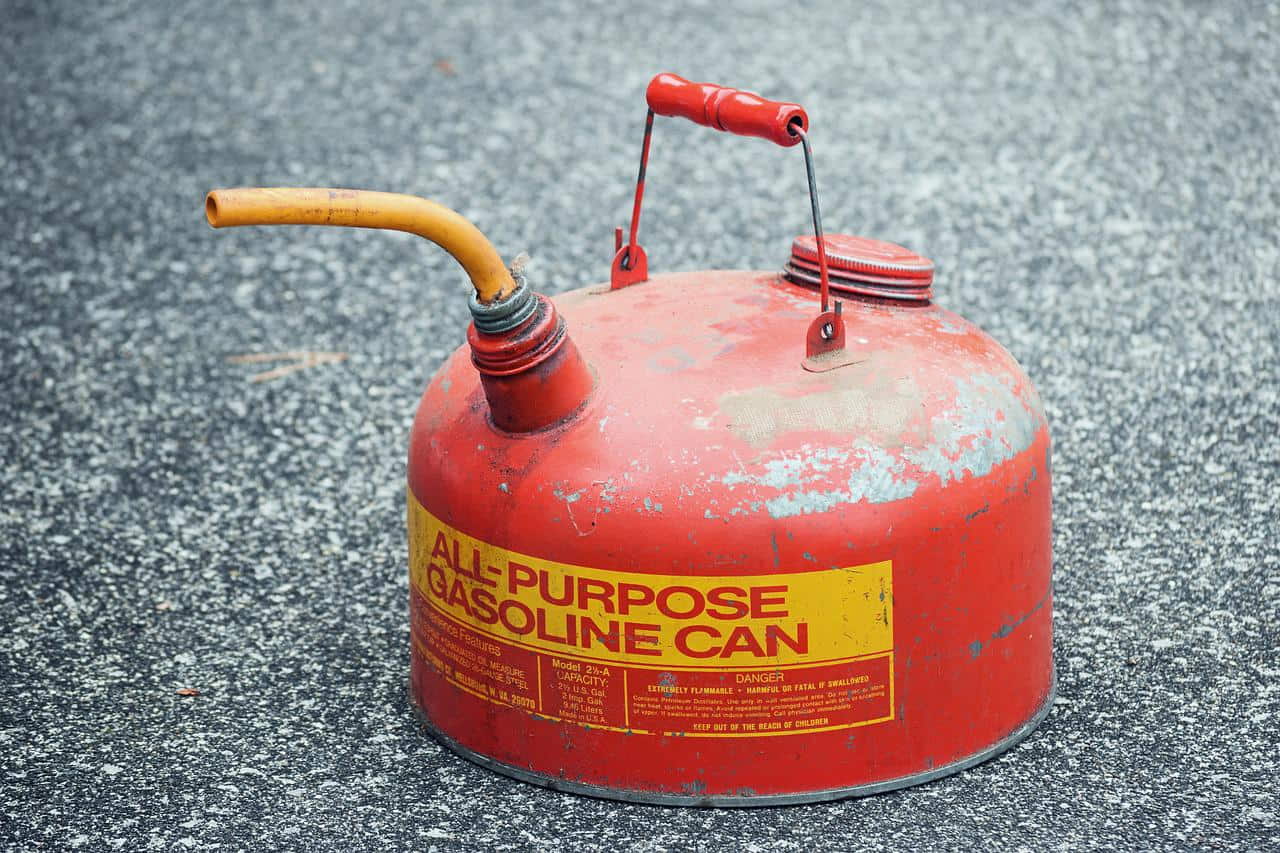You may be surprised to learn that gasoline can go bad. Gasoline breaks down over time and starts to form a gum-like substance, which can clog up your fuel lines and cause engine problems. The good news is that you can extend the life of your gasoline by storing it properly.
If you are wondering how long you can store gasoline, then look no further. In this article we will give you the complete answer, address various types of fuel and storage, provide useful tips and information, and recommend a few solutions.
How Long Can You Store Gasoline?
The U.S. Department of Energy has set the maximum shelf life for gasoline at six months when stored properly. This doesn’t mean your gas will go bad after six months. Most experts agree that as long as fuel is kept fresh and free of contaminants, it can last up to three years.
If you plan on storing gasoline for any length of time, there are a few things you can do to prolong its shelf life.
- First, make sure the gas is stored in an airtight and light-proof container.
- Second, add a fuel stabilizer to the gas before storage. This will help prevent the formation of gum and varnish deposits on engine parts. There are several highly recommended fuel stabilizers on Amazon, you can see their list by clicking here.
- Finally, store the container of gas in a cool, dry place away from heat sources and direct sunlight.
In addition, according to the American Petroleum Institute, you should not store more than 25 gallons of gasoline at a time for safety reasons. If you must store larger quantities, do so in well-ventilated areas.
The following video from PilotPatriot explains more about long-term gasoline storage:
How Can You Tell if Your Gas Is Still Good?
There are a few ways to check whether your gas is still good:
- Check the expiration date on your gas cans. This is the first indicator that your gas may not be fresh anymore.
- Smell the gas before using it. If it smells like paint or varnish, it’s probably bad and you should dispose of it safely.
- If your gas has been sitting for a while, pour a small amount into a clean container and look for signs of separation or contamination such as water or debris floating in the tank. If you see either of these things, discard the gas safely.
I will explain further in the article how you can safely discard expired gas.
How Do You Keep Gasoline Fresh?
Over time, gasoline degrades and loses its potency. This can be a problem if you’re storing gasoline for long-term use, such as in an emergency generator. Fortunately, there are steps you can take to keep your gasoline fresh for a long time, even years.
To start with, always store your gasoline in clean containers. Gasoline will degrade faster if it’s stored in dirty or rusty containers. If possible, use containers that are designed specifically for storing gasoline. These containers have features that help prevent degradation, such as airtight seals. Here is a list of the most recommended fuel containers, some of which are available for a discount price.
It’s also important to keep your gas storage area clean and free of debris. A clean storage area will help ensure that your gas doesn’t pick up any contaminants that could cause it to degrade more quickly.
Finally, as stated earlier, don’t store your gasoline near heat sources or anything else that could create sparks. Gasoline is highly flammable, so it’s important to take precautions to avoid any potential accidents. Store your gas cans in a cool, dry place away from any potential ignition sources.
Can Gasoline Still Be Good After 3 Years?
If you have a can of gasoline that’s been sitting in your garage for three years or longer, is it still any good? The answer might surprise you.
While it’s true that gas does go bad after a certain amount of time, three years isn’t necessarily enough to make it completely useless. However, the gas will definitely be less effective than it was when it was first purchased.
There are a few things that contribute to this degradation. First, the additives in gasoline start to break down over time. These additives are what help keep your engine clean and running smoothly. Without them, your engine is more likely to suffer from corrosion and other problems.
Second, evaporation also starts to take its toll on old gas. As the molecules evaporate, they leave behind heavier ones which can actually cause deposits to form on your fuel injectors and other parts of your engine.
So, while that old can of gas may not be as good as it once was, it’s still probably usable in a pinch. Just be sure to use it sooner rather than later!
How Do You Dispose of Expired Gasoline?
Expired gasoline can be harmful to your car and your health if inhaled, so it’s important that you know how to properly dispose of it.
- The first thing you need to do is dilute the gas with fresh fuel. This will help reduce the risk of fire and explosion.
- Next, use a funnel to pour the mixture into a container that can be sealed tightly.
- Once the container is full, label it clearly with the date and contents so that anyone who finds it knows what it is and when it was made.
- Finally, take the container to your local hazardous waste facility for disposal.
If you don’t have access to a hazmat facility, you can still safely dispose of your expired gasoline by pouring it into an empty soda bottle or milk jug and sealing it tightly shut before throwing it away in your regular trashcan. Just be sure not throw away any rags or other materials that may have been used to wipe up spills – these should be disposed of separately as they could ignite if they come into contact with a heat source like sunshine or a match.
How to Safely Transport Gasoline?
When transporting gasoline, it is important to take the proper precautions to ensure that the fuel is transported safely. Here are some tips on how to do so:
- Make sure that the container you are using to transport the gasoline is clean and free of any debris. This will help prevent contamination of the fuel.
- Fill the container no more than three-quarters full to allow for expansion if the temperature rises while you are transporting the gasoline.
- Keep the container tightly sealed at all times to avoid spillage or evaporation of the fuel.
- If possible, transport the container in a cool, shaded part of the vehicle, out of direct sunlight. This will prevent further evaporation.
- When transporting large quantities of gasoline, it is best to use a dedicated fuel tank or trailer designed for this purpose rather than trying to store it in your vehicle’s trunk or back seat. This will minimize the risk of fire in case of an accident.
Whether you’re transporting gasoline in cans or just storing it, always make sure that your can’s spout is in perfect condition, to prevent spillage. If it’s not, then Gas Can Spout Replacement, an Amazon’s Choice product, will take care of this problem.
It comes with multiple gas can nozzles, screw collar caps, gas can vent caps, and more. Click here to read additional reviews and see the prices.
Does Stored Diesel Last Longer Than Gasoline?
Diesel fuel can last even longer than gasoline – up to 15 months. That’s because diesel fuel is less refined than gasoline and contains more natural lubricants. These lubricants help protect the engine from wear and tear, which means that diesel engines tend to have a longer lifespan than gasoline engines.
Diesel is less prone to deterioration and evaporation than gas. However, there are a few things that can affect the shelf life of stored diesel, including exposure to air and sunlight, as well as contamination from water or other foreign substances. These are the same factors we mentioned before, which can affect the stored gasoline as well.
And just like with gasoline, you can extend diesel’s shelf life by adding fuel stabilizers. However, DO NOT add gasoline stabilizers, as they are not fully compatible with diesel and might harm its combustibility. Instead, check out the list of recommended diesel-rated stabilizers by clicking here.
Can You Put Too Much Stabilizer in Gas?
Stabilizer is an important component of gasoline, and it can help to extend the shelf life of fuel. However, it is possible to use too much stabilizer, which can cause problems.
If you add too much stabilizer to your gas, it can lead to engine damage. The stabilizer can coat the engine parts, and over time this can cause corrosion. Therefore, it’s highly important to follow the manufacturer’s recommendations when adding stabilizer to your gas.
Another problem that can occur if you use too much stabilizer is that it can make the fuel less effective. Stabilizer works by absorbing moisture, and if there’s too much in the gas, it can absorb too much moisture. This can lead to hard starts and rough idling. Again, strictly follow the manufacturer’s recommendations when using stabilizer, and you’ll be fine.
Further Reading
So there you have, a complete FAQ that covers everything you need to know about gasoline storage. Remember to always practice safety when you’re storing your gasoline, and never let it go bad.
Gasoline storage is an essential part of the SHTF planning. See the linked article for detailed information on what to do when SHTF, what to stockpile, how to behave, and how to make a detailed survival plan.
If you’re living off the grid in a remote area, you might need to store considerably large amounts of gas to save unnecessary trips to the nearest gas station. There are additional ways in which you can save money and resources while living off the grid. See my article on how to live off the grid with no money for more information.
And finally, I encourage you to see my list of best survival books. They contain all the knowledge that you need to survive the most impossible challenges and circumstances.
Stay safe out there, my friends!



